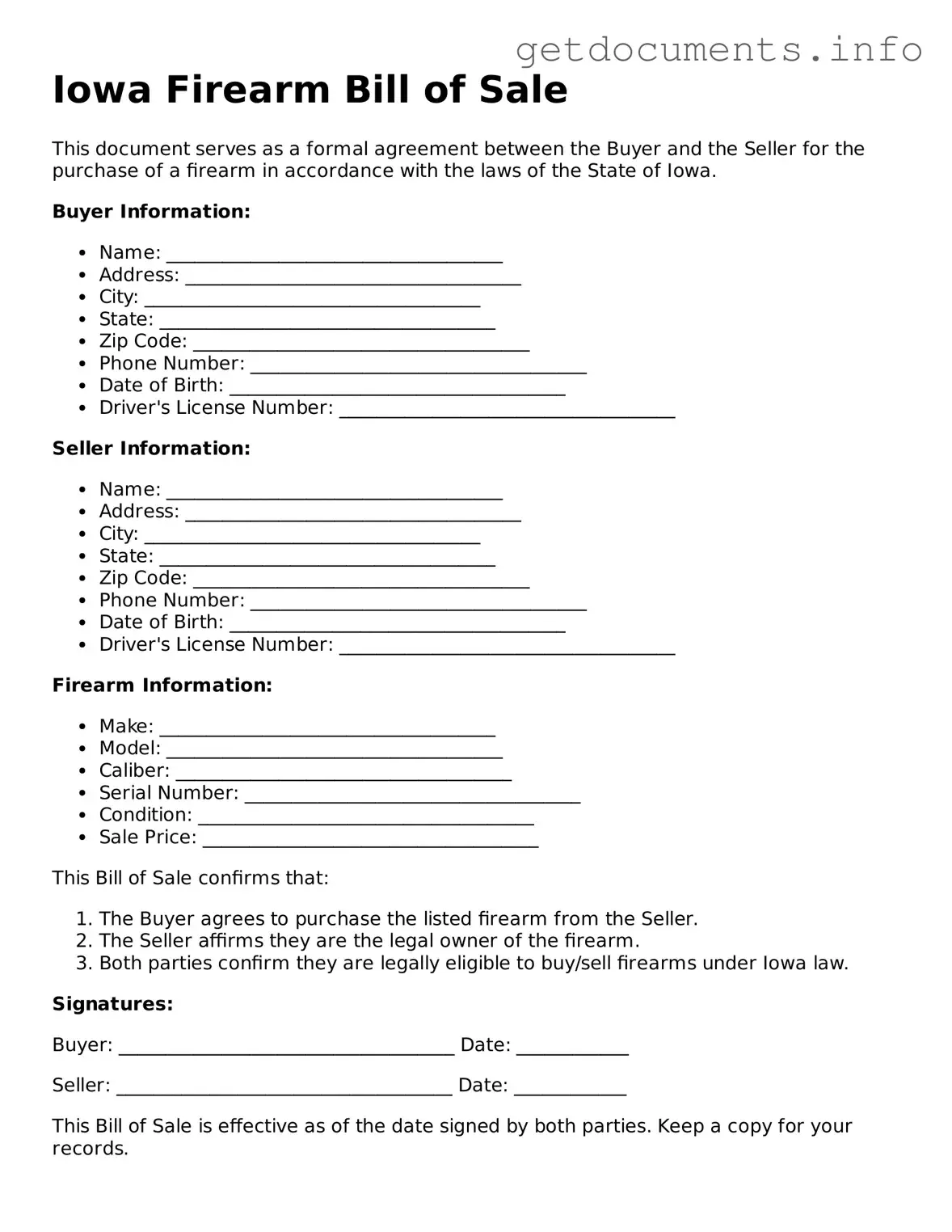Free Firearm Bill of Sale Template for Iowa
The Iowa Firearm Bill of Sale form is a legal document used to record the sale or transfer of a firearm between parties. This form serves as proof of ownership and details the terms of the transaction, ensuring that both the buyer and seller are protected under Iowa law. To learn more about the process and fill out the form, click the button below.
Access Firearm Bill of Sale Editor

Free Firearm Bill of Sale Template for Iowa
Access Firearm Bill of Sale Editor
Got places to be? Complete the form fast
Fill out Firearm Bill of Sale online and avoid printing or scanning.
Access Firearm Bill of Sale Editor
or
⇩ PDF File
